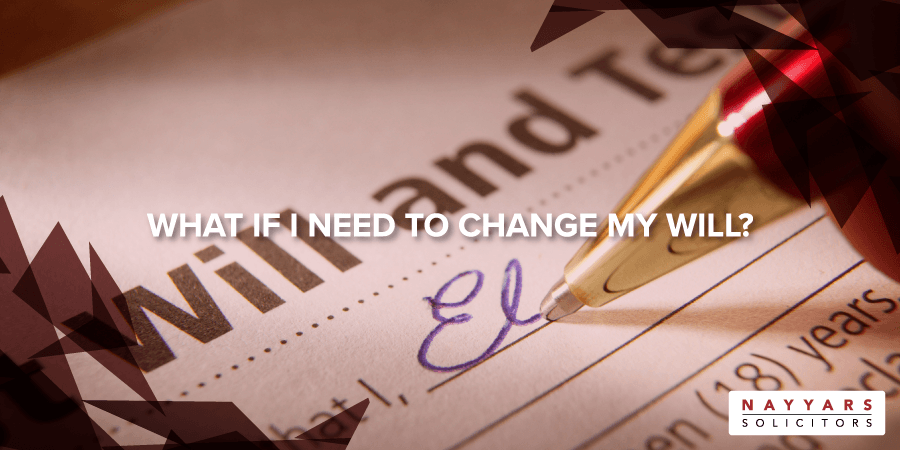LAW SOCIETY EXCELLENCE AWARDS 2019 WINNER!
How to Protect Your Finances in a Divorce

Going through a divorce is difficult enough without having to worry about your financial future. Whether you have your own assets that you want to keep hold of or you are concerned that your ex-partner is trying to hide money from you, understanding how to protect your finances in a divorce is essential.
With this in mind, we are going to look at what steps you can and can not take when ending a marriage.
How are Finances Split in Divorce?

If the decision to divorce is mutual, you may find it relatively easy to agree who gets what. If, on the other hand, there is a dispute, the court may need to step in.
Regardless of whether your divorce is amicable, it is important to understand how finances are split in the eyes of the court. Contrary to what many think, it is not simply a case of who owns what.
Instead, a court will look at a series of factors for each spouse, including but not limited to:
- Income and earning capacity
- Financial dependencies, obligations and responsibilities
- The standard of living enjoyed
- The duration of the marriage
- Physical or mental disabilities
- Contributions made or likely to make to the welfare of the family
- Conduct
Thanks to the variety of factors that can impact the court’s decision, finances can be split in a number of ways, meaning you could be awarded assets you would not ordinarily expect.
For this reason, you should never agree on a settlement without consulting a solicitor.
Is There a Penalty for Hiding Assets?
Before we look at how to protect your finances, let us answer a common question about hiding assets.
In many divorces, a spouse may attempt to hide assets in order to reduce the settlement they have to make. If you suspect your ex-partner is trying to do this, it is important to contact a solicitor as soon as possible, as there are steps you can take to stop this (which we will look at later in this blog).
If you are considering attempting to hide assets yourself, we would not recommend it. The courts have wide-ranging powers to ensure all finances and assets are disclosed and even returned if they have already been moved.
Therefore, it is unlikely that you or your ex-partner would be able to successfully hide finances and attempting to do so could negatively impact the settlement you receive.
Even if finances are successfully hidden at the time of the divorce, the future discovery of them could result in the case being reopened and a different order being made.
How to Protect Your Finances in a Divorce
Identify What is Yours
While your divorce finances will not be settled on the basis of who owns what, a good starting point is always to identify what you own, what your ex-partner owns and what is jointly owned.
Where there are assets that technically belong to your ex-partner, but which may impact your final settlement (such as property), there may be steps you can take to ensure they are not sold without your consent.
Stop Assets Moving
We previously mentioned that there are legal steps you (or more likely your solicitor) can take if you are concerned your ex-partner may try to move or hide assets. These include:
- An order under section 37 of the Matrimonial Causes Act 1973 to either prevent the disposal of assets or require the return of assets previously transferred.
- A freezing order, which also prevents the disposal of assets but has further reach to apply to assets overseas and assets that have not yet come into existence, such as a pension.
- Search orders, which are rarely used due to their cost but can be very effective in identifying hidden assets.
Protect Your Home
For most couples, their home will present the most valuable asset in the divorce. In the event that your family home is owned solely by your ex-partner, you can register Matrimonial Home Rights with the Land Registry.
This will ensure that the home cannot be sold or remortgaged without your consent.
If you both own the property as ‘joint tenants’ then you may wish to change this to owning the property as ‘tenants in common’.
You will both still own the same amount of the property, but your half will not automatically transfer to your ex-partner should you die before the divorce is finalised. Instead, you could leave your portion to your children as part of you will.
Mortgages and Rent
If you have a mortgage on your family home or rent it, you will need to inform either your mortgage provider or landlord of your divorce, so you can take either your name or your ex-partner’s name off the associated documentation.
If you do not take this step, you will still be liable for the payments. For example, if you moved out of the family home and your ex-partner failed to pay the mortgage, you would be liable for the cost. The same goes for rent.
Banks, Credit Cards and Loan Providers
You will need to inform your bank and other lenders of your divorce if you have shared accounts or debts.
You can ask your bank to change the set-up of the account so any withdrawals need to be agreed by both of you and can even freeze the account if you need to, though both of you will need to consent to unfreeze it.
If your wage is paid into a joint account, consider changing this if you are worried your ex-partner will not agree to you taking the money out.
Clean Break Order
Technically, divorce proceedings only dissolve a marriage and do not automatically end any financial obligations you have to your ex-partner, such as ongoing maintenance.
If you would rather draw a line under your divorce and go your separate ways, you can apply to the court for a Clean Break Order, which declares each person is waiving their rights to make a financial claim against their ex-spouse.
If you think you may want to apply for a Clean Break Order, ensure you seek professional legal advice.
What Not to Do

Alongside what you can do to protect your finances during a divorce, there are also some things you should not do if you want to have the strongest possible case. These include:
- Failing to Declare Assets: For reasons we have already covered, hiding assets never works. Deliberately failing to declare assets could even be treated as contempt of court, meaning you could face a fine or worse.
- Leave the Home: There are many reasons why you may need to leave the family home during your divorce, but, if possible, it is wise to stay. This is because leaving may result in the remaining spouse having a stronger claim that they need the property as they have the main care of any children. They may also be more comfortable financially and, therefore, less motivated to act quickly.
- Move in with a New Partner: Moving in and sharing bills with a new partner can impact your divorce, as the court will consider this cohabitee a potential resource, meaning their finances will have to be disclosed and could impact your settlement.
- Open Private Finance Documents: You may be used to opening your spouse’s bank statements or reading their emails but you will need to stop. This evidence will be inadmissible in court and you may even be breaking the law in gathering it.
- Reach an Agreement without Expert Advice: Even if your divorce is amicable, you should not agree on the financial terms of your divorce without the advice of a solicitor. As we saw at the beginning of this blog, you may be entitled to more than you think, so always consult a solicitor.
If you are considering a divorce or currently going through one and have concerns that your finances are not protected, get in touch with Nayyars Solicitors to learn how we can help you.



